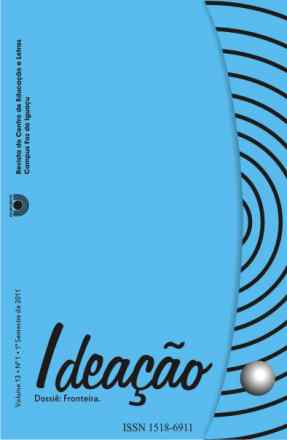QUEM É SHAKESPEARE? SEUS TRÊS PILARES FORMATIVOS COMO PRINCIPAIS CONTRIBUTOS À SUA GENIALIDADE
Ideação
QUEM É SHAKESPEARE? SEUS TRÊS PILARES FORMATIVOS COMO PRINCIPAIS CONTRIBUTOS À SUA GENIALIDADE
Autor Correspondente: Junior Cunha | [email protected]
Palavras-chave: Shakespeare; Formação; Família; Grammar School; Homilias Dominicais
Resumos Cadastrados
Resumo Português:
Passados 400 anos da morte de Shakespeare, ainda temos muitas lacunas a preencher sobre o mais importante autor do período elisabetano. Suas obras sempre se revelam como mananciais e as leituras e interpretações que podemos fazer a partir delas são inesgotáveis. Surge então a questão: quem é o autor por trás de toda essa riqueza No presente artigo, abordamos os três pilares formativos do jovem William: sua família, sua educação na Grammar School e o teor político contido nas homilias dominicais de seu tempo. Posteriormente, relacionamos esses pilares com quatro de suas peças, as grandes tragédias: Hamlet, Macbeth, Otelo e Rei Lear. O tema proposto será abordado a partir de obras da maior especialista brasileira em Shakespeare, a professora e crítica de teatro, Bárbara Heliodora; um dos mais expressivos professores de Yale e atualmente um dos grandes especialistas em Shakespeare, Harold Bloom; e ainda, o professor e tradutor, Pedro Süssekind. Como resultado, apresentaremos que, mesmo sendo dotado de uma grande genialidade e sua curiosidade não tenha limites, muito do sucesso do bardo é devido a sua época e as influências que recebeu.
Resumo Inglês:
After 400 years of Shakespeare's death, we still have many gaps to fill about the most important author of the Elizabethan period. His works always reveal themselves as springs and the readings and interpretations that we can make from them are inexhaustible. A question then arises: who is the author behind all this wealth? In this article we address the three formative pillars of the young William: his family, his education in the Grammar School and the political content contained in the Sunday homilies of his time. Later, we relate these pillars with four of his pieces, the great tragedies: Hamlet, Macbeth, Othello and King Lear. The proposed theme will be approached from the works of the greatest Brazilian specialist in Shakespeare, the professor and theater critic, Barbara Heliodora; one of Yale's most expressive professors and currently one of the great specialists in Shakespeare, Harold Bloom; and also the professor and translator, Pedro Süssekind. As a result, we will show that although he is endowed with great genius and his curiosity has no limits, much of the bard's success is due to epoch he lived and the influences he received.

